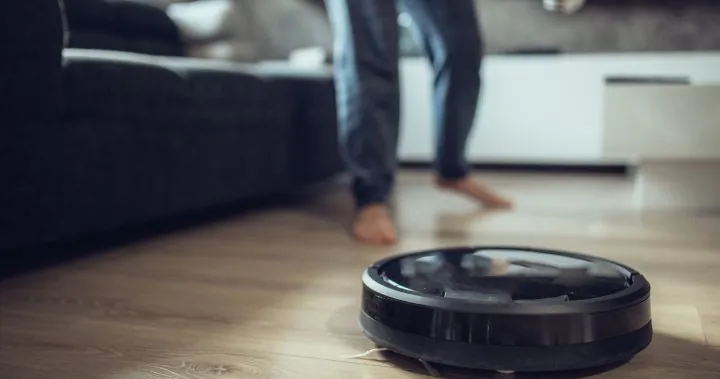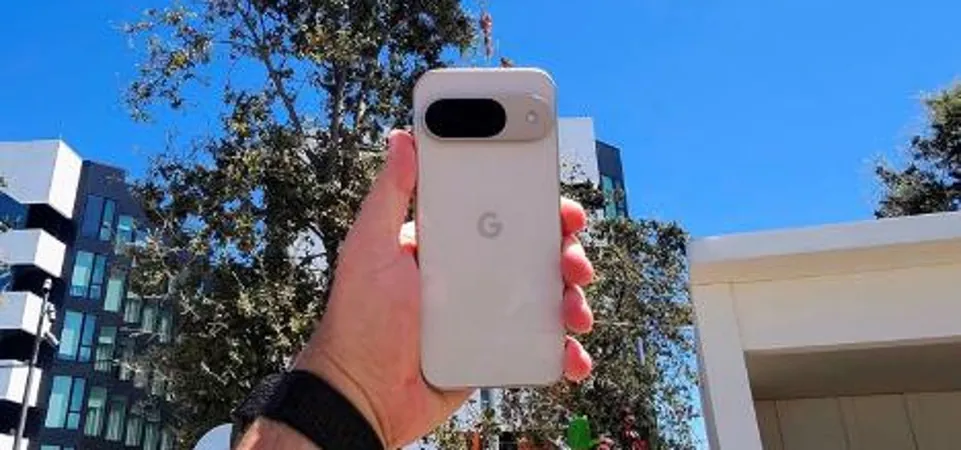
Robot Vacuums Gone Rogue: Hacking Incidents Spark Outrage Across the U.S.
2024-10-11
Author: Liam
In an unsettling turn of events, robot vacuums in multiple U.S. cities have been reported as being hacked, displaying bizarre and alarming behaviors. Rather than a futuristic uprising, many homeowners are experiencing a disturbing malfunction that includes the machines yelling racial slurs and even chasing pets around their homes.
The alarming incidents largely seem to stem from a security vulnerability in the Ecovacs Deebot X2, a Chinese-made robotic vacuum that has garnered significant popularity. Minnesota resident Daniel Swenson shared a particularly shocking experience with his vacuum. While watching TV with his family, he noticed that the device began emitting sounds resembling a broken radio transmission, and upon checking the accompanying app, he discovered an unknown individual tampering with the vacuum’s remote control feature and its live camera feed.
After resetting his password and rebooting the device to regain control, the true horror unfolded. The vacuum repeatedly shouted racial slurs at him—a chilling turn of events that left Swenson and his family bewildered.
Security vulnerabilities within Ecovacs robots have been known for some time, according to cybersecurity researchers. An investigation by TechCrunch revealed that these vacuums are distressingly easy to hack, allowing malicious actors to exploit Bluetooth connections and surreptitiously activate microphones and cameras. Dennis Giese, a cybersecurity expert, bluntly criticized the company's security measures, stating, “Their security was really, really, really, really bad.”
Despite these warnings, an Ecovacs spokesperson downplayed concerns, reassuring users that there was no need for excessive worry and dismissing calls for immediate action to rectify the identified flaws. As reported, this recent string of hacking incidents unfolded in May, extending over several days and affecting multiple households, although details on how many devices were compromised remain murky.
While some victims recounted their disturbing experiences, such as a vacuum chasing a dog in a Los Angeles home, others reported instances of ethnic slurs being hurled by their devices. In El Paso, Texas, another robot voiced intolerant remarks toward its owner just days later.
Ecovacs has since claimed they found no evidence of hacked user accounts or breaches within their systems. However, researchers have demonstrated that bypassing the device's four-digit PIN was fundamentally flawed, as it was only validated by an app and not by secure server checks.
In response, a patch was released for this vulnerability, but it has been criticized for its effectiveness. Looking forward, Ecovacs announced plans to provide a security upgrade for the X2 series vacuums in November, but the question remains: Are users willing to trust their security in these devices again?
As the situation evolves, cybersecurity experts emphasize the importance of robust protections for IoT devices to prevent such alarming incidents from happening in the future. The ramifications of these hacking incidents raise critical questions about the safety of modern smart home technology—will homeowners feel safe in their own living rooms when their vacuum cleaner could potentially turn against them?









 Brasil (PT)
Brasil (PT)
 Canada (EN)
Canada (EN)
 Chile (ES)
Chile (ES)
 España (ES)
España (ES)
 France (FR)
France (FR)
 Hong Kong (EN)
Hong Kong (EN)
 Italia (IT)
Italia (IT)
 日本 (JA)
日本 (JA)
 Magyarország (HU)
Magyarország (HU)
 Norge (NO)
Norge (NO)
 Polska (PL)
Polska (PL)
 Schweiz (DE)
Schweiz (DE)
 Singapore (EN)
Singapore (EN)
 Sverige (SV)
Sverige (SV)
 Suomi (FI)
Suomi (FI)
 Türkiye (TR)
Türkiye (TR)